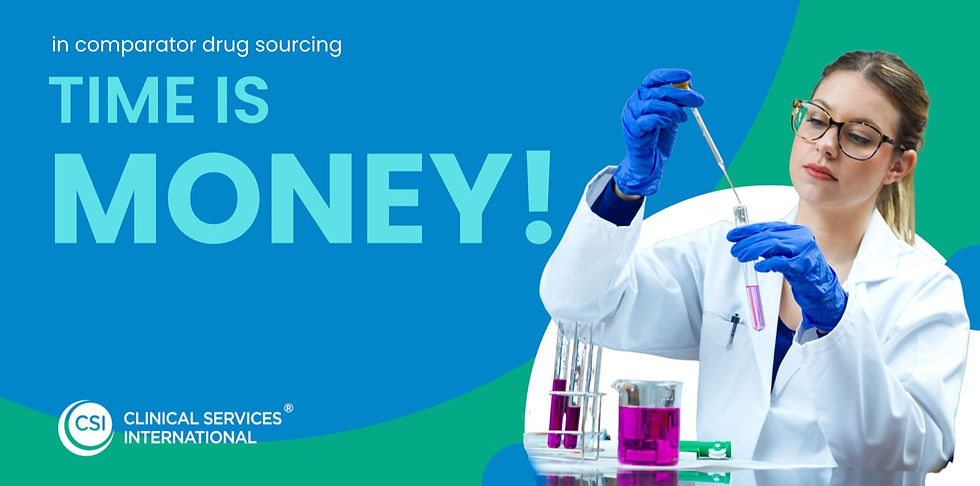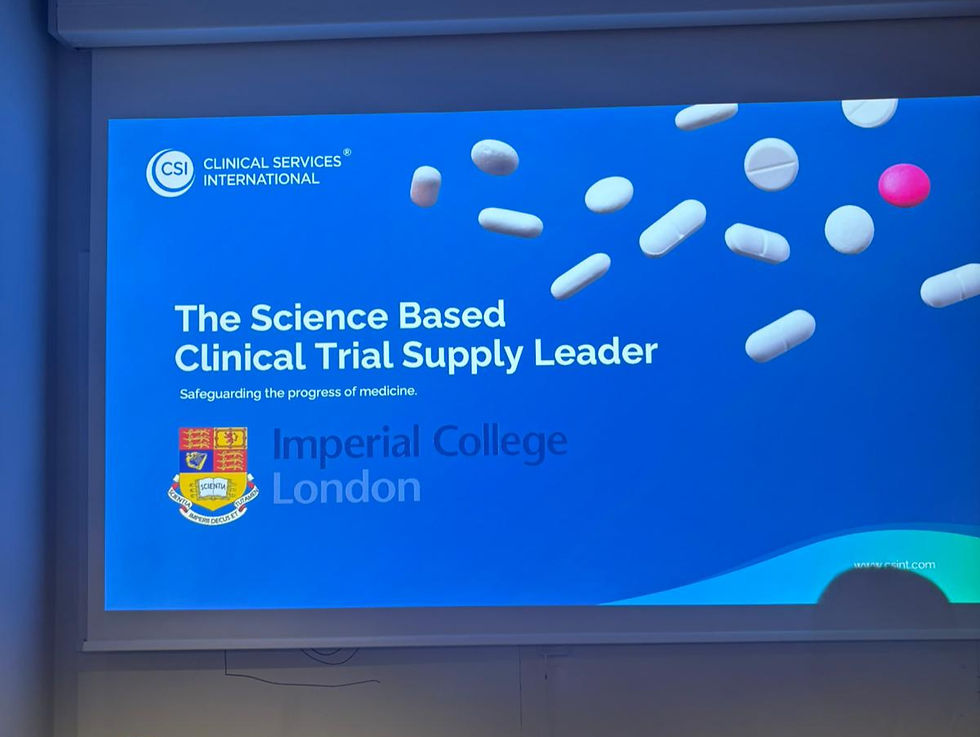Time is Money in Comparator Sourcing
- Clinical Services International (CSI)

- Jul 17, 2025
- 3 min read
In an industry where both timelines and budgets are under constant pressure, clinical trial sponsors and CROs are often forced to balance the two most critical resources: time and money.
At Clinical Services International (CSI), we work with clients around the world navigating this challenge. And whilst cost control is understandably top of mind, it is often time, not price, that defines success.

Price Matters… But Isn’t Everything
Sponsors and CROs are understandably price-sensitive when sourcing comparator drugs. Clinical trials are expensive, and sourcing branded, high-value medications can account for a significant portion of the supply budget. Naturally, clients want to:
Compare quotes
Secure the best unit cost
Avoid excess supply or wastage
Keep procurement aligned with financial forecasts
CSI supports cost-effective sourcing through direct manufacturer relationships, batch management and optimized packaging and labelling and logistics strategies.
However, the cheapest option isn’t always the best option, especially when it puts the trial timeline at risk.
Speed and Reliability Are Strategic Assets
Reliable access and timely delivery are non-negotiable when you're managing a Phase II/III trial across multiple regions. Here’s why time often trumps cost in practice:
Many trials require synchronized dosing schedules or enrolment windows. Late delivery of comparators can compromise protocol adherence and data integrity.
Shipping into high-risk or regulated markets (eg LATAM, APAC) demands expert navigation of import/export laws and local registration; tasks that require time and proactive planning.
Some comparator drugs have tight expiry windows. A lower price per unit is irrelevant if the product expires before use due to customs or shipping delays.
Timely access to the right batch-specific documentation (eg CoA) is critical. Delays in obtaining these can hold up site approvals.
The Hidden Cost of Delays
Starting a trial even a few weeks late can have a domino effect:
Recruitment timelines shift
Site engagement weakens
Contracts require renegotiation
Funding and regulatory commitments are jeopardized
Overall program costs increase
In global trials, a delay in comparator delivery to just one country can slow activation for all sites, triggering a cascade of missed milestones, budget overruns and sponsor dissatisfaction. In these scenarios, the financial cost of delay often far exceeds the savings from a lower-cost comparator source.
CSI’s Approach: Balancing Time and Cost without Compromise
Over the past 25 years, CSI has seen time and again that clients are willing to invest more in sourcing when a study start is imminent, expiry dates are tight and shelf-life is critical, or when the drug is allocated, restricted or in shortage. In these cases, speed, reliability, and documentation compliance are what make the difference, not just price per unit.
At CSI, we don’t force clients to choose between cost and speed. Here’s how:
CSI’s Global sourcing network gives us flexibility to source comparators quickly from multiple regions
Direct manufacturer access ensures product authenticity and documentation
Regulatory expertise speeds up customs and compliance
Local depot presence in over 60 countries reduces last-mile delivery timelines
Smart forecasting minimizes waste while ensuring ongoing supply
We work closely with sponsors to assess the cost of delay vs. cost of supply, so decisions are made with both budget and timeline impact in mind.
Conclusion: Yes, price matters. But starting your trial on time, delivering drug to site reliably, and maintaining compliance across borders often outweighs a marginal cost saving. At CSI, we believe the real value lies in speed, reliability, and peace of mind. Because in clinical research, losing time often costs more than money.




.png)
Comments